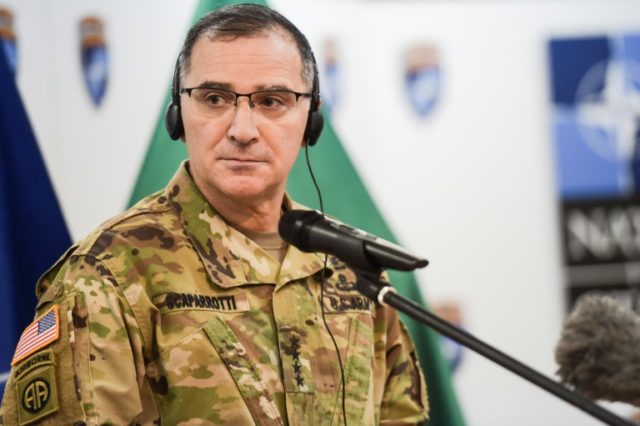Washington (AFP) – President Donald Trump’s proposed gutting of the State Department budget and other “soft power” agencies could hamper long-term security goals and make the military’s job tougher, US generals are warning.
Trump wants to slash federal spending across an array of agencies and foreign aid programs, and eliminate other organizations to pay for a boost in Pentagon spending, including by lopping 28 percent from State Department coffers.
Under his proposals, defense spending would increase by nearly 10 percent to $639 billion, more than the next seven nations combined.
But top generals are telling lawmakers this military-centric approach doesn’t fully address the plethora of global security challenges.
General Curtis Scaparrotti, NATO’s Supreme Allied Commander and the head of the US military’s European Command, on Thursday warned against the proposed cuts.
“It would make the job more difficult,” Scaparrotti told the Senate Armed Services Committee.
“I rely heavily on our relationships with the other agencies in my government.”
US efforts to counter transnational extremism in Europe are being led primarily by State and Treasury Department personnel, he added.
His remarks came a day after General Joe Dunford, chairman of the Joint Chiefs of Staff, said America must leverage all of its capabilities, “diplomatically, economically and militarily” in the fight against the Islamic State group.
“We’re involved in a war of ideas and undermining the credibility of the narrative and the threat is going to be critical to our success,” Dunford said.
Secretary of State Rex Tillerson has said he does not oppose the deep cuts to his department and will “willingly” accept Trump’s challenge to tighten the budget.
– ‘Buy more ammunition’ –
Diplomats and some former defense officials have already warned that less spending on areas like democracy promotion and humanitarian aid will spell more trouble, and military spending, down the road.
Earlier this month, General Thomas Waldhauser, head of US Africa Command, told lawmakers that demographics and economics are a main factor driving people to sign up with jihadist groups.
“We’ve got to find a way to get at education, health care, hopelessness, livelihood and the like in order to give those individuals a future,” Waldhauser told the Senate Armed Services Committee.
“We could knock off all the (IS) and Boko Haram this afternoon. But by the end (of the) week… those ranks would be filled. We know… that the reason (some of them) joined was they needed a job, they needed a livelihood.”
Speaking at the same hearing, General Joseph Votel, who heads US Central Command, stressed that a solely military response is not sufficient at solving conflicts.
“Ultimately, we want to increasingly involve other elements of the US government and the international community, recognizing that it is only through a combination of capabilities that we will achieve and sustain our strongest deterrence posture,” he said.
More than 120 retired generals and admirals recently signed a letter warning “that many of the crises our nation faces do not have military solutions alone.”
Trump’s defense secretary, retired general Jim Mattis, has not weighed in on the debate on the budget, which is sure to undergo significant changes before it passes.
But in 2013, while still in uniform, Mattis had a stark warning for Congress.
“If you don’t fully fund the State Department, then I need to buy more ammunition,” he said.

COMMENTS
Please let us know if you're having issues with commenting.